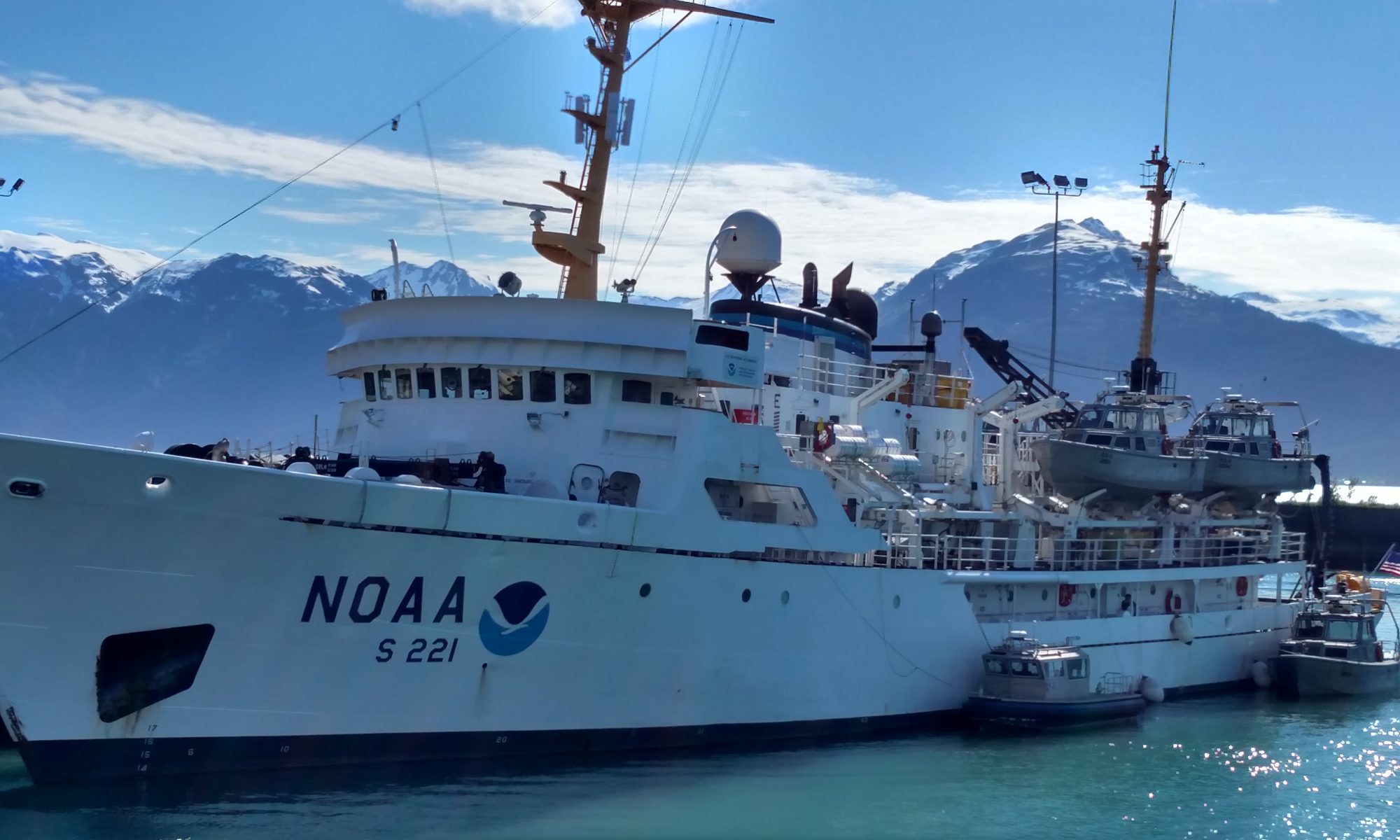NOAA Teacher at Sea
Virginia Warren
Aboard R/V Hugh R. Sharp
July 9 – 17, 2013
Mission: Sea Scallop Survey
Geographical Area of Cruise: Northwest Atlantic Ocean
Date: Thursday, June 27, 2013
Personal Log:

Hello, my name is Virginia Warren and I live in Theodore, Alabama. I teach 5th grade science and social studies at Breitling Elementary School in Grand Bay. I am really excited to have been chosen by NOAA (National Oceanic and Atmospheric Administration) to be a part of their Teacher at Sea program! I believe that one of my biggest responsibilities as a teacher is to educate my students about the importance of protecting and conserving the earth and its seas so that they will continue to thrive for many generations to come. Both Theodore and Grand Bay are only minutes from the Gulf Coast. The Gulf Coast has abundance of what I think are the prettiest, sugar-white-sand beaches the world has to offer. Growing up on the Gulf Coast has created a love and passion in my heart for the sea and all the wonder creatures that live in it! I’m so thankful to NOAA for giving me the opportunity to be a real scientist and to learn more about the scientific research behind protecting the seas that I love so much.
Science and Technology Log:
I will be sailing from Woods Hole, Massachusetts aboard the R/V Hugh R. Sharp to participate in an Atlantic sea scallop survey. The R/V Hugh R. Sharp was built in 2006, is 146 feet long, and is the newest vessel in the University of Delaware’s College of Earth, Ocean, and Environment fleet. You can take a virtual tour of the ship by clicking here. If you would like to follow the ship while I am at sea you can track the ship here (Google Earth is required).

Courtesy of http://www.nrl.navy.mil/media/news-releases/2013/navy-researchers-reservists-evaluate-novel-passive-sonar-surveillance-methods
The purpose of a sea scallop survey is to protect this important fishery from being over-harvested. Traditionally scientists will dredge the bottom of the ocean with a scallop dredge to collect samples. NOAA uses the information collected from the surveys to make decisions about which areas are okay to harvest scallops.

Courtesy of http://www.vims.edu/features/research/scallop_management.php
The R/V Hugh R. Sharp is equipped with a relatively new piece of equipment called the HabCam, short for Habitat Camera Mapping System. The HabCam is a less invasive way to survey populations and allows scientists to see what is on the ocean floor. This is an alternative method of surveying, compared to dredging. I look forward to learning how both methods of surveying work.
What I Hope to Learn:
I am so excited to be able to learn firsthand what it’s like to be a real scientist and to be able to participate in a genuine research experience. I hope to learn more about the scientific process and pass the knowledge I learn on to my students. I am also excited to learn about the different types of sea life found in the North West Atlantic Ocean and compare that with what I know of sea life from home on the Gulf of Mexico.
Please follow me on this adventure as I post my experiences on this blog. Let me know what you think by leaving your thoughts and questions in the comment section at the bottom of every blog entry.


Thank you for sharing your adventure with us. I am looking forward to learning and following your experience. Love you lots be safe and have a blast!!!
I am looking forward to following your adventures at sea. Thanks for the pictures. can’t wait to see your next blog. Have a great time and learn bunches so you can teach your students about the Atlantic.
Enjoy the work, and learn much. Then come back and share with all!
Hi Ms. Warren I hope your having fun and have a great summer…
Thanks JoAnna, I hope you are having a great summer as well! Thanks for checking in on me, I should have more posts coming soon!
We love you and will keep up with the blog of your trip. be safe
Love Grandmother, JP, Lisa and Angal
You look like a real “basket case” in your on board picture… LOL You haven’t eaten any of them have you? What is the largest one you’ve seen?
Thanks Dad! We did get to eat some and they were great!!
What a wonderful adventure you will have to share. I can’t wait to hear all about it.